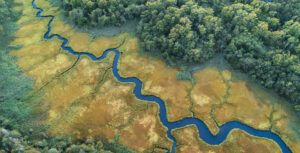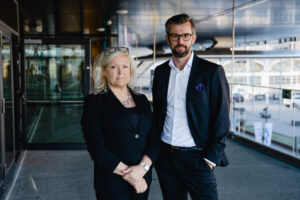World Water Week 2024, SIWI’s annual conference hosted in Stockholm and online, was a critical event for water. The theme for this year was "Bridging Borders: Water for a Peaceful and Sustainable Future".
Following the UN 2023 Water Conference and the continued Water Action Agenda, this year’s World Water Week (WWW) was a convening place for various stakeholders to meet and discuss what has been achieved so far, and where we need to be headed next.
“Participants like us have the privilege to be here unlike those who are suffering on the ground – how do we make things actionable for them? We need to think about how we transfer the knowledge we already have to the rest of the world,” reflected Dania Al Khafaji of Blue Peace Middle East, Iraq, one of the conference participants, in response to her takeaway from World Water Week 2024.
This year’s World Water Week saw record numbers of onsite participants and 12,000 people joining online, with engagement from 198 countries and territories. “We are proud to have, once again, brought the global community together, across all borders, to show that the strive to put water and people in the centre of a sustainable future is a truly global affair,” said Andreas Karlsson, Director of Communications at SIWI.
So, what were five main takeaways from this year that made World Water Week truly worth attending?
- The power of water to bring together partners across sectors: The global challenges we face are interconnected, therefore, we need interconnected and multifaceted solutions. We saw engagement from food, health, climate, source-to-sea, arts and culture and beyond from initiatives running from local to global scales. People and planet are connected by water. For peace to prevail, continuous dialogue and arenas that create space for open dialogue need to be established, and World Water Week serves this exact purpose.
- Strong recognition of Indigenous Peoples voices: Several Indigenous Peoples expressed that they found SIWI’s World Water Week to be a platform where they are seen and heard in great numbers. They demand that Indigenous Peoples and youth have the same presence in formal discussions, and invited during decision making processes, especially regarding those decisions that concern them.








